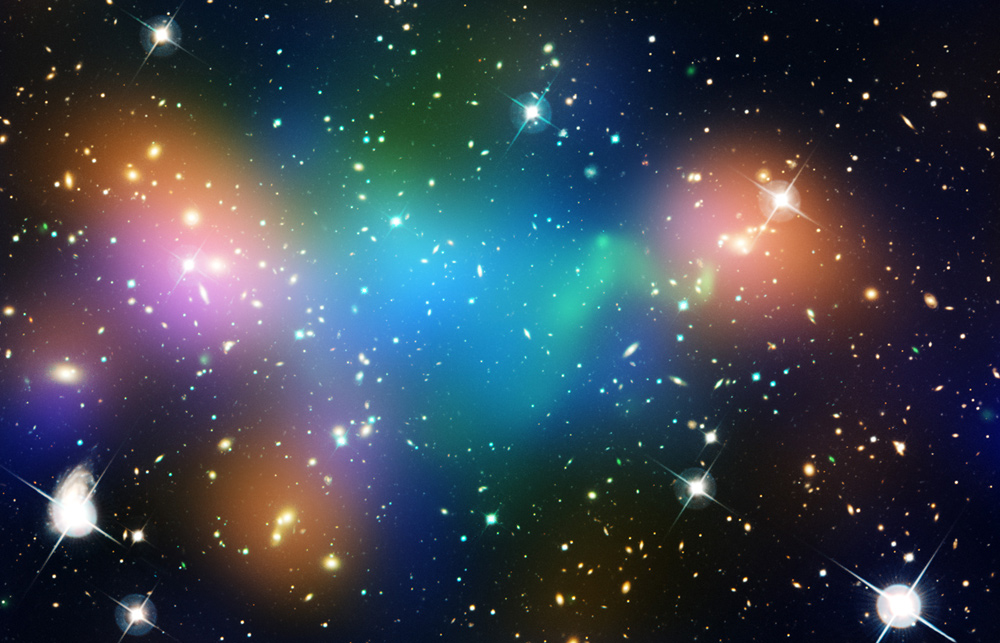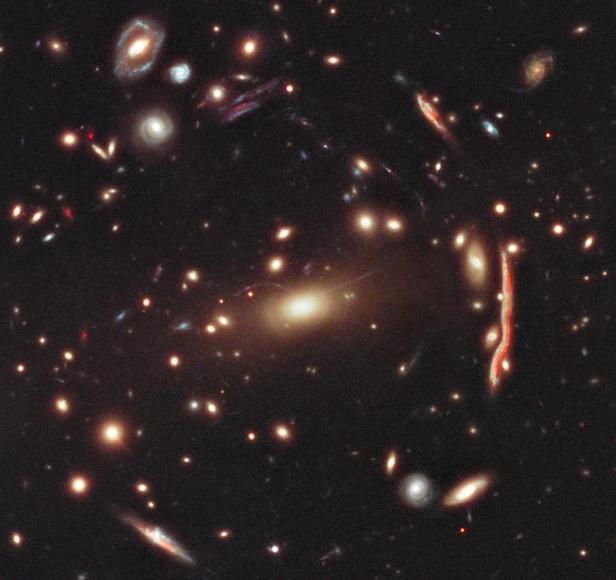What came first, dark matter or the Big Bang?
Not much is known about dark matter, but scientists have long-thought that it was the remnant of the birth of the universe

Dark matter makes up roughly a quarter of the universe, with normal matter only making up five per cent and the remainder being dark energy. Image credit: NASA, ESA, CFHT, CXO, M.J. Jee (University of California, Davis), and A. Mahdavi (San Francisco State University)
Dark matter, which researchers believe make up about 80 percent of the universe’s mass, is one of the most elusive mysteries in modern physics. What exactly it is and how it came to be is a mystery, but a new Johns Hopkins University study now suggests that dark matter may have existed before the Big Bang.
The study, published 7 August 2019 in Physical Review Letters, presents a new idea of how dark matter was born and how to identify it with astronomical observations.
“The study revealed a new connection between particle physics and astronomy. If dark matter consists of new particles that were born before the Big Bang, they affect the way galaxies are distributed in the sky in a unique way. This connection may be used to reveal their identity and make conclusions about the times before the Big Bang too,” says Tommi Tenkanen, a postdoctoral fellow in Physics and Astronomy at the Johns Hopkins University, Baltimore, Maryland, United States and the study’s author.
While not much is known about its origins, astronomers have shown that dark matter plays a crucial role in the formation of galaxies and galaxy clusters. Though not directly observable, scientists know that dark matter exists by its gravitational effects on visible matter moves and is distributed in space.
For a long time, researchers believed that dark matter must be a leftover substance from the Big Bang. Researchers have long sought this kind of dark matter, but so far all experimental searches have been unsuccessful.
“If dark matter were truly a remnant of the Big Bang, then in many cases researchers should have seen a direct signal of dark matter in different particle physics experiments already,” says Tenkanen.

The distorted shapes in the cluster are distant galaxies from which the light is bent by the gravitational pull of an invisible material called dark matter within the cluster of galaxies. Image credit: NASA/ESA/M. Postman (STScI)/the CLASH Team
Using a new, simple mathematical framework, the study shows that dark matter may have been produced before the Big Bang during an era known as the cosmic inflation when space was expanding very rapidly. The rapid expansion is believed to lead to copious production of certain types of particles called scalars. So far, only one scalar particle has been discovered, the famous Higgs boson.
“We do not know what dark matter is, but if it has anything to do with any scalar particles, it may be older than the Big Bang. With the proposed mathematical scenario, we don’t have to assume new types of interactions between visible and dark matter beyond gravity, which we already know is there,” explains Tenkanen.
While the idea that dark matter existed before the Big Bang is not new, other theorists have not been able to come up with calculations that support the idea. The new study shows that researchers have always overlooked the simplest possible mathematical scenario for dark matter’s origins, he says.
The new study also suggests a way to test the origin of dark matter by observing the signatures dark matter leaves on the distribution of matter in the universe.
“While this type of dark matter is too elusive to be found in particle experiments, it can reveal its presence in astronomical observations. We will soon learn more about the origin of dark matter when the Euclid satellite is launched in 2022. It’s going to be very exciting to see what it will reveal about dark matter and if its findings can be used to peak into the times before the Big Bang.”
Keep up to date with the latest news in All About Space – available every month for just £4.99. Alternatively you can subscribe here for a fraction of the price!




